अर्थ: “भाग्य का मारा होना” मुहावरा वह व्यक्तियों पर प्रयोग होता है जिनका भाग्य उन्हें साथ नहीं दे रहा हो, या जिनके साथ अच्छा न हो रहा हो। इस मुहावरे का प्रयोग विशेष रूप से उन समयों में होता है जब किसी के साथ कुछ बुरा होता है जिसका कारण वह स्वयं नहीं होता।
वाक्य में प्रयोग: “राम की नौकरी चली गई, और फिर उसकी तबियत भी खराब हो गई। वाकई, वह भाग्य का मारा है।”
उदाहरण: अगर किसी को लगातार दुर्घटनाएं हो रही हों, जैसे की वह बार-बार बीमार पड़ रहा हो या उसका संविधानिक अधिकार बार-बार विफल हो रहा हो, तो उसे ‘भाग्य का मारा’ कह सकते हैं।
मौलिकता: इस मुहावरे का उपयोग उस समय होता है जब किसी व्यक्ति का भाग्य उसके साथ नहीं होता और उसे बार-बार संघर्ष करना पड़ता है। इसे उस समय पर प्रयोग किया जाता है जब आपको लगे कि किसी व्यक्ति का समय बहुत खराब चल रहा है।
निष्कर्ष: “भाग्य का मारा होना” मुहावरा उस व्यक्ति के लिए प्रयोग किया जाता है जिसके साथ अच्छा न हो रहा हो, चाहे वह स्थितियाँ हों, ताजा घटनाएं, या कोई अन्य अवस्था। यह उस व्यक्ति के लिए सहानुभूति और समझाने का एक तरीका है जिसने बहुत सारे मुश्किलों का सामना किया है।

भाग्य का मारा होना मुहावरा पर कहानी:
किशन एक साधारण गाँव में रहता था। वह हर रोज़ अपने खेतों में काम करता और परिवार के लिए अच्छी जीवन जीने की कोशिश करता। लेकिन किशन के साथ हर बार कुछ गलत हो जाता।
पहले, उसकी फसलें अच्छे मौसम की उम्मीद में लगाई गई, लेकिन फिर अचानक बारिश हो गई और उसकी सारी फसल बर्बाद हो गई। उसने फिर नई फसल लगाई, लेकिन इस बार टिड्डियों का हमला हुआ और वह सारी फसल को खा गई।
गाँव में सभी किशन को ‘भाग्य का मारा’ मानने लगे थे। उसकी किस्मत में अच्छा होना ही नहीं था। वह हर रोज़ भगवान से प्रार्थना करता कि उसकी मुश्किलें खत्म हो जाएं, लेकिन हर बार कुछ न कुछ बुरा हो जाता।
एक दिन, गाँव के बुजुर्ग नामक रामदास जी ने उसे बुलाया और कहा, “किशन, भाग्य तो अवश्य हमारे साथ होता है, लेकिन हमें उस पर निर्भर नहीं रहना चाहिए। तुम्हें अपनी कठिनाइयों का सामना करना होगा और उन्हें पार करना होगा।”
किशन ने उनकी बातों को समझा और अपनी मेहनत और संघर्ष में डबल ताकत लगा दी। धीरे-धीरे, उसकी मेहनत रंग लाई और वह अपने खेतों में अच्छी पैदावार प्राप्त करने लगा।
गाँववाले अब समझ गए थे कि “भाग्य का मारा होना” मुहावरा सिर्फ एक अवस्था है, जिसे हम अपनी मेहनत और संघर्ष से बदल सकते हैं।
शायरी:
भाग्य के खेल में अक्सर हूँ हारा,
कहते हैं लोग मुझे ‘भाग्य का मारा’।
फिर भी उम्मीद में दिल बेहद जागा,
किस्मत से ज्यादा, काम में है वादा।
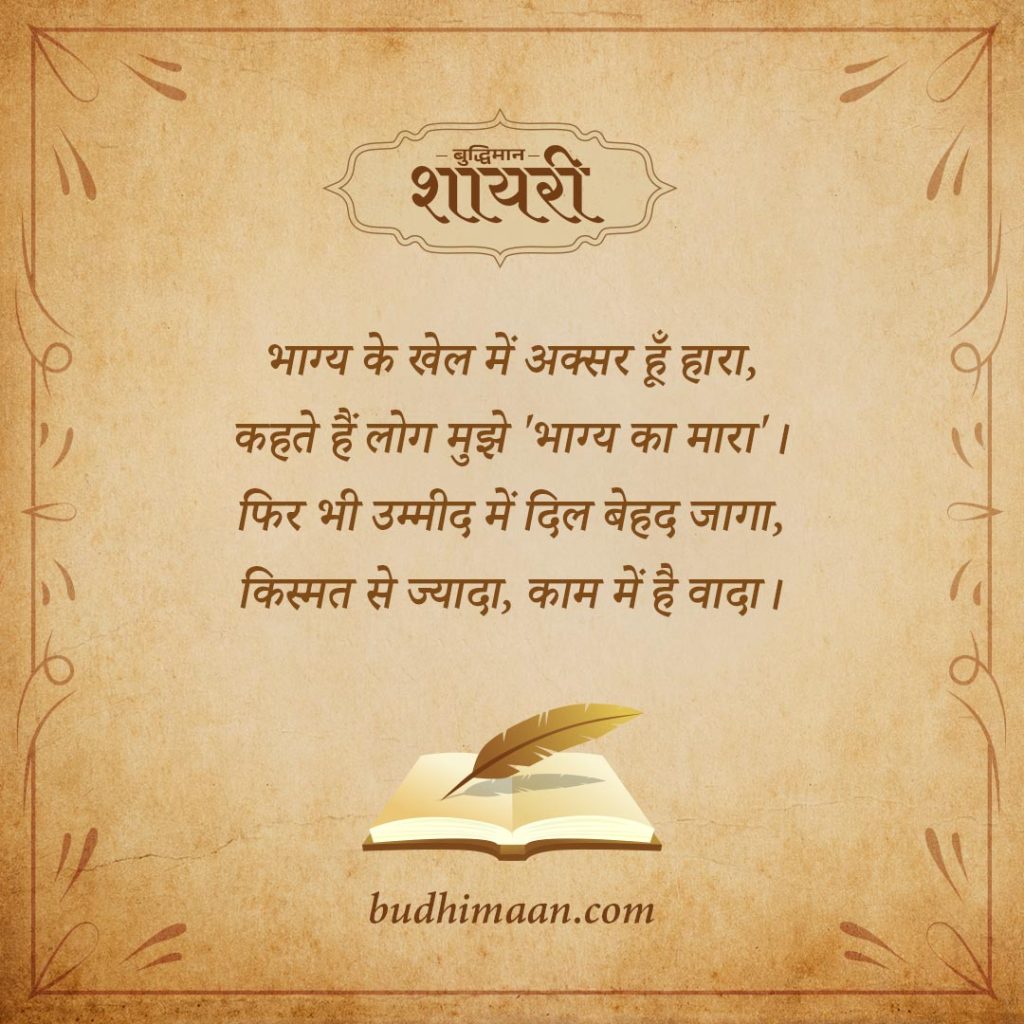
आशा है कि आपको इस मुहावरे की समझ आ गई होगी और आप इसका सही प्रयोग कर पाएंगे।
Hindi to English Translation of भाग्य का मारा होना – Bhagya ka maara hona Idiom:
Meaning: The idiom “Bhagya ka maara hona” is used to describe individuals who seem to be having constant bad luck or are going through tough times. This phrase is particularly used when someone faces misfortunes that aren’t their own fault.
Usage: “Ram lost his job, and then he fell ill. Truly, he is struck by fate.”
Example: If someone is experiencing a series of accidents, such as frequently falling ill or constantly facing failures, they can be described as ‘Bhagya ka maara’ (struck by fate).
Origin: The phrase is used when someone’s fate seems to be working against them, and they constantly face challenges. It’s invoked at times when you feel someone is going through a particularly rough patch.
Conclusion: The idiom “Bhagya ka maara hona” is used to show sympathy and understanding towards someone who is undergoing many difficulties, be it circumstances, recent events, or any other condition. It’s a way to empathize with someone who has faced a series of hardships.
Story of Bhagya ka maara hona idiom in English:
Kishan lived in a simple village. Every day, he worked in his fields, trying to provide a good life for his family. But every time, something would go wrong for Kishan.
Initially, he planted crops hoping for good weather, but then unexpected rains came, ruining all his crops. He planted anew, but this time locusts attacked and consumed the entire yield.
The villagers started to consider Kishan as “struck by fate.” It seemed good fortune wasn’t in his destiny. Every day he would pray to God to end his difficulties, but each time, some misfortune would strike.
One day, the village elder named Ramdas called him and said, “Kishan, fate indeed plays its role, but we shouldn’t be solely dependent on it. You must confront your challenges and overcome them.”
Taking his words to heart, Kishan doubled his efforts and determination in his work. Gradually, his hard work bore fruit, and he began to see good yields in his fields.
The villagers now realized that being “struck by fate” is merely a phase, which can be transformed with hard work and perseverance.
I hope this gives you a clear understanding of the proverb and how to use it correctly
FAQs:
इस मुहावरे का प्रयोग किस प्रकार की स्थितियों में किया जाता है?
जब कोई व्यक्ति लगातार असफलताओं और दुर्भाग्य का सामना कर रहा हो, तब इस मुहावरे का प्रयोग किया जाता है।
क्या इस मुहावरे का उपयोग सकारात्मक सन्दर्भ में भी होता है?
नहीं, यह मुहावरा मुख्यतः नकारात्मक सन्दर्भ में ही उपयोग किया जाता है।
“भाग्य का मारा होना” के समानार्थी शब्द क्या हैं?
इसके समानार्थी शब्द हैं “दुर्भाग्यशाली”, “बदकिस्मत” आदि।
क्या यह मुहावरा अन्य भाषाओं में भी पाया जाता है?
हां, इस प्रकार के भाव अन्य भाषाओं में भी व्यक्त किए जाते हैं, लेकिन शब्दों और अभिव्यक्ति का तरीका भिन्न हो सकता है।
“भाग्य का मारा होना” मुहावरे का प्रयोग बच्चों को कैसे समझाया जा सकता है?
बच्चों को यह समझाने के लिए कहानियाँ या उदाहरण देकर समझाया जा सकता है जहाँ मुख्य पात्र को लगातार बुरी किस्मत का सामना करना पड़ता है।
हिंदी मुहावरों की पूरी लिस्ट एक साथ देखने के लिए यहाँ क्लिक करें
यह मुहावरा ब से शुरू होने वाले मुहावरे पेज पर भी उपलब्ध है।


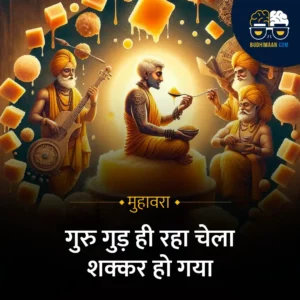
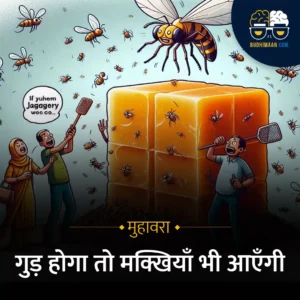
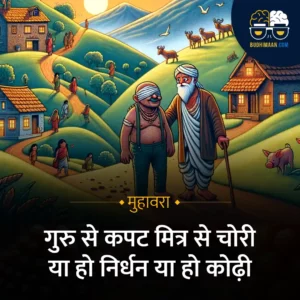
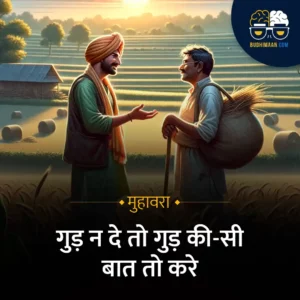
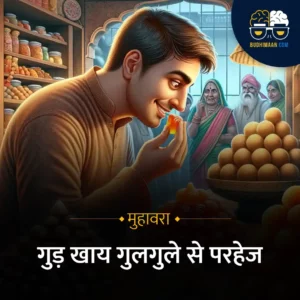
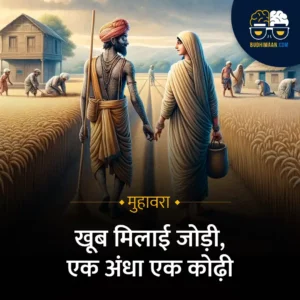
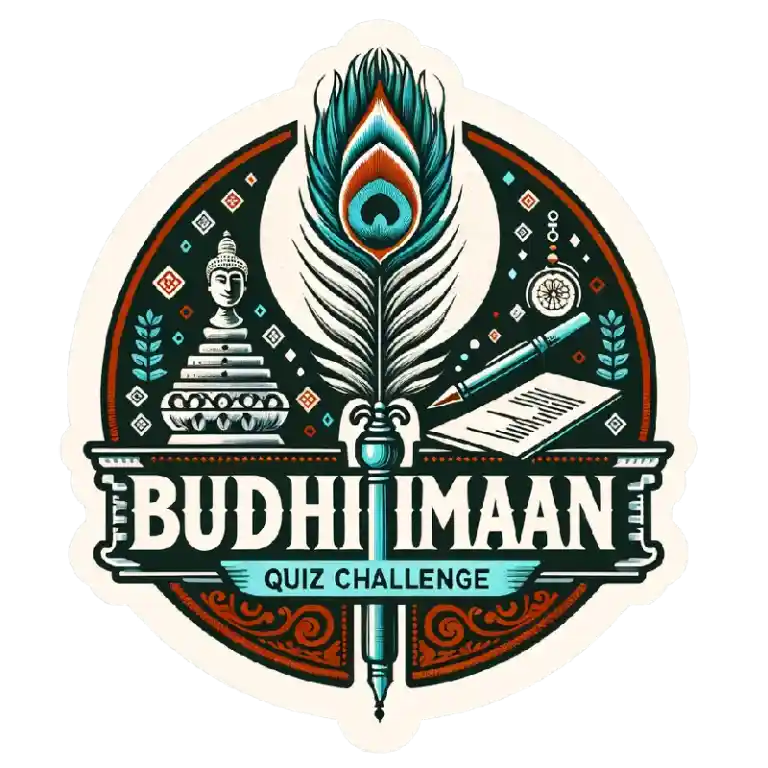
1 टिप्पणी